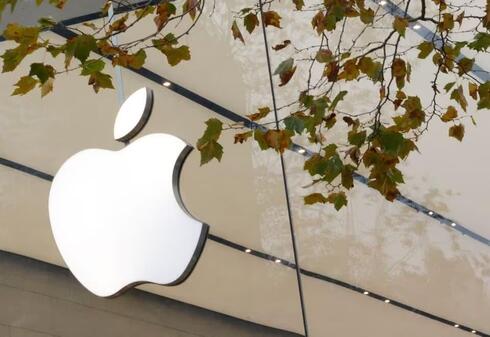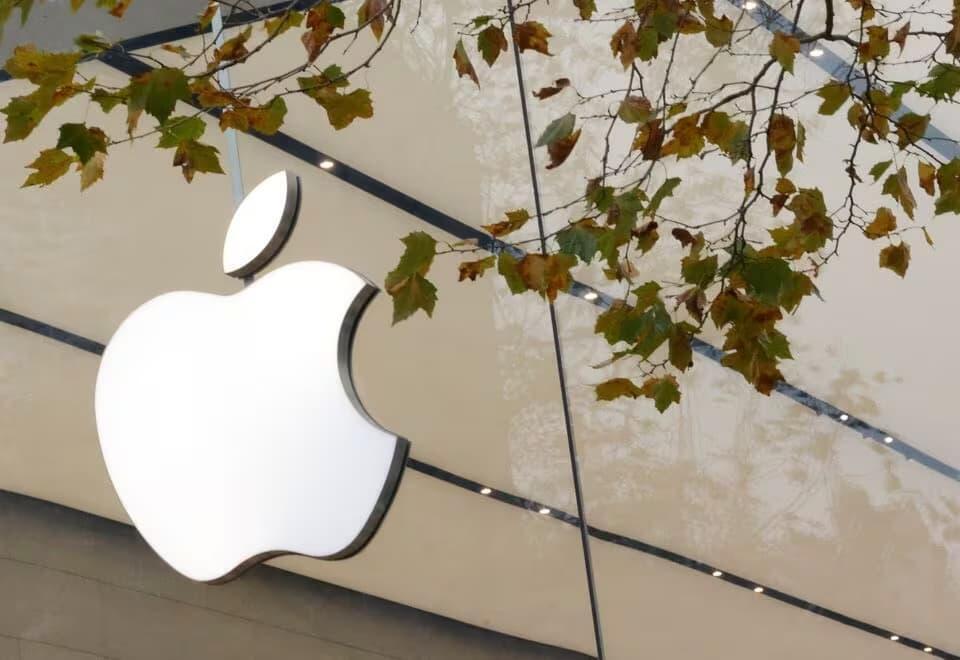
Apple's new developer terms spark outrage as Pro Vision launch nears
Apple’s recently unveiled policy announced in response to the EU's new Digital Markets Act, that is forcing it to allow users to download apps from third-party app stores, may help it maintain control and profits in the short term, but is already dividing and frustrating developers
Apple recently announced the new terms under which external developers must abide by in order to be allowed on iOS for European users. This move comes ahead of the European Union's Digital Markets Act (DMA) coming into force in March, which is intended to force large technology platforms to be generally open, accessible, and interoperable with different ecosystems. However, Apple imposed so many restrictions as part of this initiative that for developers it seems more like a narrow crack than a door. The response from the Apple developer community has been so negative that it is causing the tech giant to risk alienation when they most need support for the launch of the Pro Vision mixed reality (MR) headset this week, whose success will heavily depend on the availability of external applications.
On March 7, the EU’s Digital Markets Act will come into effect, presenting new and extensive regulations for large platforms, including app stores, search engines, browsers, operating systems, and more. The law, which applies to services with an annual turnover of at least 7.5 billion euros in the EU and at least 45 million EU users, will require tech companies to limit the use of personal data, restrict exclusivity on products or services offered to end users, allow the installation of third-party applications on the company's operating systems, prohibit giving preference to the company's products over competitors' products, and more.
Apple, with its closed ecosystem, is considered one of the main targets of the new regulation, as it will force the company to open its largest platform for downloading and installing applications without going through its App Store, for the first time since the launch of the iPhone in 2007. This will only apply to the 27 states within the EU.
According to Apple’s announcement, it will allow EU residents to install applications through independent developer stores that compete with the App Store, allow developers in the App Store to use alternative payment services to Apple Pay, open access to the NFC chip in the device for financial services not processed through Apple Pay, and present new iPhone buyers with a menu to download and set up an alternative default browser to Apple's Safari, which can, for the first time, use an independent browser engine (currently, all iPhone browsers are based on Apple's engine).
However, the truth often lies in the details, and one of the small details is that Apple will not allow the self-installation of applications directly from developer sites, but only through other independent app stores. Not everyone can simply create such a store, as Apple requires app stores to present a credit commitment of one million euros, covering potential claims from developers and users. In addition, independent stores will need to undergo Apple's approval process before users can download and install applications directly from the developer's site.
After installation (and explicit approval for their operation), users will be able to download applications from independent stores, including those that violate Apple's guidelines. However, Apple still plans to closely monitor this activity: each application will have to undergo Apple's approval process, including automatic and human examination, and comply with basic rules such as scanning for malware. External app stores will still be managed through Apple's systems, and developers will only be able to distribute one identical version of their application across different app stores.
Developers who choose to work with external app stores alongside the App Store will pay a 17% commission on each transaction made in an application downloaded from the App Store (or 10% for developers who are part of Apple's small business program). This is in contrast to the 30% commission that has been in place since its launch in 2008 – a clear indication that true competition leads to lower prices. Developers who use Apple's payment services must also pay an additional 3% commission.
For each new installation of an application beyond the first million installations, developers will pay a commission of half a euro per installation, whether it is done through the App Store or through an external app store. This could impact the activity of apps in the premium model, which is built on the model that only a small number of users pay for premium features, or lead to the abandonment of a small developer whose free app suddenly becomes viral. According to Apple, the new commission structure will reduce costs for 99% of developers, and only less than 1% will pay the application installation fee.
The broader, some might say draconian, restrictions are Apple's way of maintaining maximum control over the iPhone while minimally adhering to the formal requirements of the new regulation. According to Apple, these restrictions are necessary to dealing with the risks that may arise from opening the platform, such as creating new opportunities for bad actors and compromising device privacy, security, and reliability. "Apple is committed to creating technology that allows apps to install other apps, and there is inherent risk here," said Phil Schiller, a senior Apple executive who manages the App Store. "A significant new threat vector to the device’s privacy, security, and reliability could emerge, so Apple is combining technologies and policies in an attempt to minimize this risk."
However, the Apple developer community is not convinced. Tim Sweeney, CEO of Epic Games, which sued Apple (and lost most of its claims) over the company's App Store policy, tweeted that Apple's updated policy is "a devious new instance of Malicious Compliance. They are forcing developers to choose between App Store exclusivity and the store terms, which will be illegal under DMA, or accept a new also-illegal anticompetitive scheme rife with new Junk Fees on downloads and new Apple taxes on payments they don't process. Apple proposes that it can choose which stores are allowed to compete with their App Store. They could block Epic from launching the Epic Games Store and distributing Fortnite through it, for example, or block Microsoft, Valve, Good Old Games, or new entrants."
Spotify CEO Daniel Ek, another longtime critic of Apple's App Store policy, who was among those who pushed for the DMA legislation, tweeted "Sadly this is a classic move of an old, dominant company that believes the rules don’t apply to them. Instead of adapting and innovating, they're twisting the situation, making it seem like the regulators are at fault. Or even worse, pretending this has to do with security when it’s clearly a ploy to drive their own profits."
Mozilla Foundation, which developed the Mozilla Firefox browser, said that allowing the use of independent engines only in the European Union is "very disappointing." They added that "The impact of this will force independent browsers like Firefox to build and maintain two separate versions of their browser, a burden that Apple itself will not have to deal with," according to The Verge.
Nikita Bier, founder of the Gas app, acquired this month by Discord, estimated that under the new commission terms, an application with 10 million downloads and $10 million in sales, using Apple's payment system, will pay the company fees of $6.2 million per year. This is compared to about $3 million per year under the existing terms. "Assuming you have no operational or salary costs, you take home $2 million after tax, or 20% of your sales. I will never launch an application in Europe," he said.
David Heinemeier Hansson, the creator of the Ruby on Rails web development platform, wrote in his blog that Apple's new policy will prevent major players like Meta from using alternative app stores. "And let’s take Meta as a good example. Their Instagram app alone is used by over 300 million people in Europe. Let’s just say for easy math there’s 250 million of those in the EU. In order to distribute Instagram on, say, a new Microsoft iOS App Store, Meta would have to pay Apple $11,277,174 PER MONTH(!!!) as a 'Core Technology Fee'. That’s $135 MILLION DOLLARS per year. Just for the privilege of putting Instagram into a competing store. No fee if they stay in Apple’s App Store exclusively," he wrote in his blog.
Not all developers viewed the changes introduced by Apple negatively. "This is good for us," said Yuval Kaminka, Co-founder and CEO of Simply (formerly JoyTunes), to Calcalist. Simply develops premium apps for learning how to play musical instruments, singing, and painting. Currently, the company pays Apple a 30% commission on all purchases through its iPhone apps. With the new policy, its commission in Europe will decrease to 20%, or 17% if an external payment service is used.
"It directly affects our pockets; we will pay significantly less," explained Kaminka. "The new download tax (half a euro for every download over a million downloads per year) is significantly smaller than what we save from a 10% reduction in the commission. There is also a whole world of payment collections opening up to us. We can collect payments with Stripe, PayPal, or direct contact with credit card companies."
However, Kaminka also acknowledged that many developers may not welcome the changes. "Popular games with ad-based models, Freemium, or giant free apps like those of Meta or Google, will pay more under the new commission model," he said. "They don't have to switch to the new model. Completely free apps can simply stay in the existing model and not pay at all. So YouTube and Facebook will just stay on the App Store, and then Apple will say that many apps chose to stay in the old model, proving that it was actually okay. But it won't end there. There will be legal discussions with European regulators for another couple of years. There will be legal and regulatory battles."
For Apple, the negative reaction of the developer community indicates short-term and limited thinking in the design of the new policy, one that protects the company's immediate interests but may cause significant long-term damage. The large and influential developer community is one of Apple's key success factors for more than a decade. Steve Jobs understood well that there is a limit to what can be achieved with excellent hardware and top-notch software, and that ultimately it is the developers and their diverse applications that maintain consistent appeal and long-term user commitment. Over the years, they have also become a significant source of revenue for Apple, generating billions of dollars in revenue each quarter.
But in its struggle to maintain control of the iPhone, it seems that Apple is mainly trying to preserve the revenue developers generate for it, rather than their loyalty and commitment to its platform. The new policy may help it maintain control and profits in the short term, but is already also causing alienation and frustration among developers, which it may pay for in the future in their reduced commitment to its ecosystem in favor of competing platforms like Google's Android.
And this is not necessarily a particularly far-off concern. This week, Apple will launch the Vision Pro, its prestigious and expensive MR headset, which is supposed to be the most significant product launch for Apple since the iPhone in 2007. While the company has done well on the technological and design side of the Vision Pro, the main task now is to convince developers to come and create apps for it. Meanwhile, developers are expressing skepticism about the new platform, and the headset will be launched without prominent applications like Netflix, YouTube, and Spotify. Now more than ever, Apple needs its developers, needs their goodwill, mobilization, and enthusiasm to prove the capabilities of the Vision Pro, and precisely this week, it chose to take a move that infuriates, distances, and alienates them. In an attempt to preserve the current platform, Apple may be sacrificing the platform of the future. And the price it will pay for it may be higher than the profits it is trying to protect.
First published: 12:48, 29.01.24















